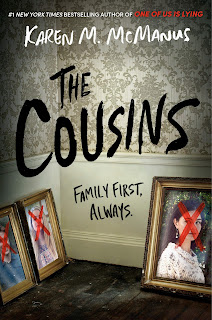As Lady Mary Wortly Montagu discusses her many travels, the mention of fashion and clothing seem to be present in nearly every description of a new people. While it can be said that as a female she knew more of the clothing, it is possible that this ability to describe and admire such adornment defines the agency of both the foreign subject and Lady Montagu herself. It is these interactions that will teach Lady Montague to "speak" within another culture and gain agency in it.
In Vienna she notes the absurdity of the fashions, specifically of the hair and dress: "You may suppose how this extraordinary dress sets off and improves the natural ugliness, with which God Almighty has been pleased to endow them..." (Vienna, Sept 14 O.S.) The way that these Austrian women form agency is though their clothing, and Lady Montagu believes they are not communicating beauty to others. These supposedly "civilized" women are actually "lying" with outlandish hairstyles and absurd clothing to hide their lack of culture or refinement. Lady Montagu does not participate in the agency of their fashion, and mocks it repeatedly during her stay.
However, Lady Montagu encounters an entirely different scene when she visits a bath house in Turkey: "There were many amongst them, as exactly proportioned as ever any goddess was drawn by the pencil of Guido or Titian,-and most of their skins shining white, only adorned by their beautiful hair divided into many tresses..." (Adrianople, April 1 O.S. 1717) These women are a sharp contrast to the heavily made-up beauties of Vienna. Lady Montague admires their natural beauty more, as they exist as openly as possibly, but still does not undress to bathe with them. She does show her stays or corset, but refuses to join completely, showing that she is more open to acculturation within the foreign society.

Finally, Lady Montague becomes an agent for herself by acclimating to the ruling class of Turkey. She describes rose-coloured damask "drawers," a silk gauze smock, a waistcoat, robe, and fine headdress. As much as possible is covered with jewels, feathers, and flowers. Lady Montague notes: "I can assure you with great truth. that the court of England (though I believe it the fairest in Christendom) does not contain so many beauties as are under our protection here." No longer acting as passive bystander to the agency of fashion, Lady Montague becomes an active participant. She negotiates her agency to become the foreigner, empowering her to be noticed and respected within the culture.
 The descriptions continue throughout the letters. Fashion is more than just clothing; Lady Montague uses her descriptions to comment on the society of the wearer, and the intended effect on foreigners. She seems to form venerated opinions of the Turkish people, though perhaps it is because it is the only culture in which she had agency through fashion. She retains her English cultural identity, but finds avenues to appreciate and communicate with the Turkish people.
The descriptions continue throughout the letters. Fashion is more than just clothing; Lady Montague uses her descriptions to comment on the society of the wearer, and the intended effect on foreigners. She seems to form venerated opinions of the Turkish people, though perhaps it is because it is the only culture in which she had agency through fashion. She retains her English cultural identity, but finds avenues to appreciate and communicate with the Turkish people.Photo 1-http://portal.cohass.ntu.edu.sg/citizens/
Photo 2-http://www.18cwomenwriters.com/travel/
Photo 3- http://didyouknow.org/graphics/people/wig-etch.jpg



I believe that Lady Montagu focused on fashion because she had such an affinity for drama. Throughout the text, she appears to view actions as theatrical, and to her the costuming of cultures had to be especially interesting. However, she also shows her cultural biases by changing the names of clothing items to proper aristocratic items. I, too, thought that Lady Montagu viewed dress as a way to find agency and power in foreign environments and situations. She was also at an advantage, though, because her aristocratic dress transcended culture and showed anyone she came in contact with that she came from sophistication and education. As an aside, I would have been more than happy to see some of the outfits she describes--especially the Turkish ones--in person.
ReplyDeleteGreat post, Kristen. You bring up great points regarding fashion in the text that I overlooked while reading it. The descriptions of clothing, or lack thereof, in the hammam scene communicate many messages regarding Montagu’s views on Turkish and English dress. You mention the way in which Montagu normalizes the natural beauty and nakedness of the Turkish women, yet refuses to completely join in. It seems Montagu uses this moment to convey the unnaturalness of the corsets forced upon English women. She manipulates the scene in order to demonstrate her disdain against the patriarchal dominance women endure in England. She is now the foreigner imprisoned by unnatural corsets and stays by her husband. Nevertheless, she does not fully undress, upholding her English identity, and as you stated, found other ways to engage in the Turkish culture.
ReplyDelete-Adia